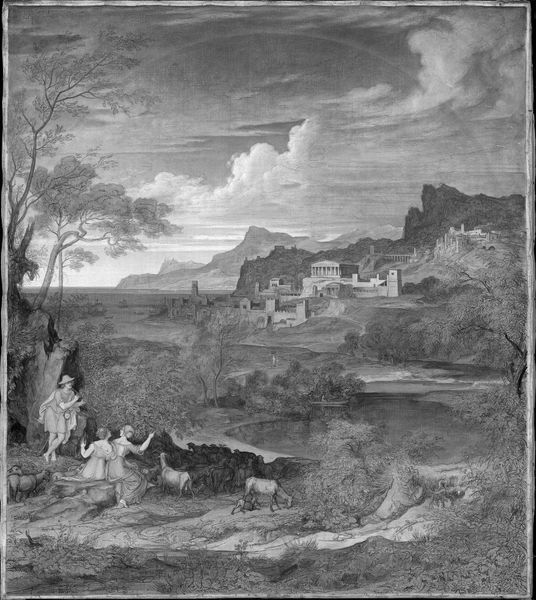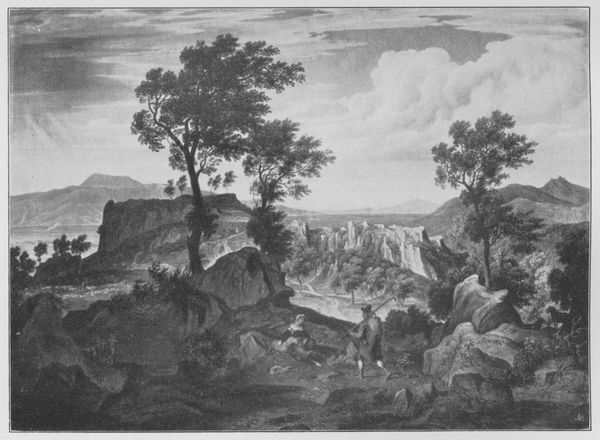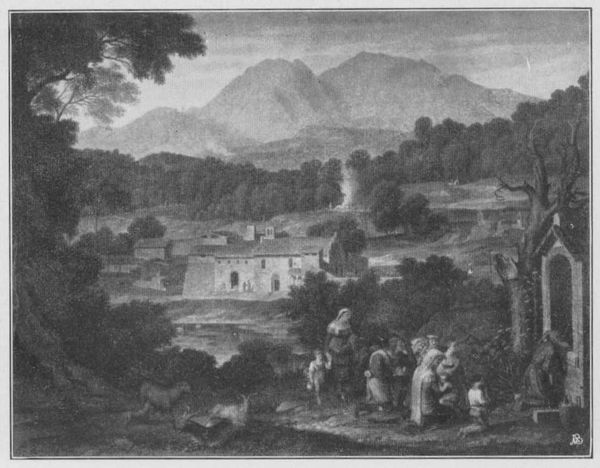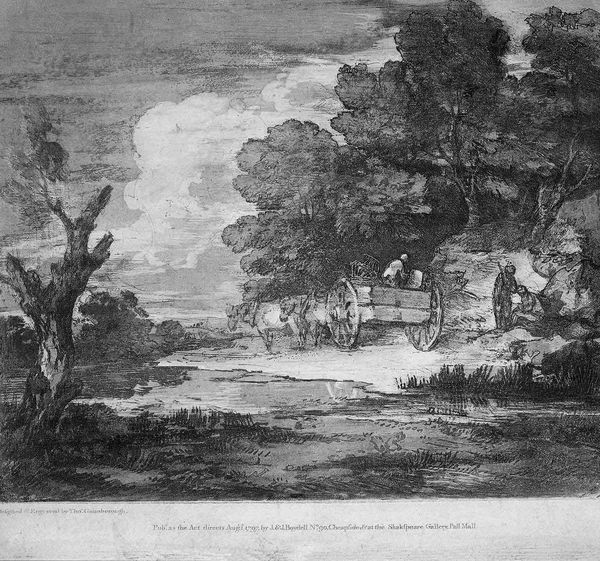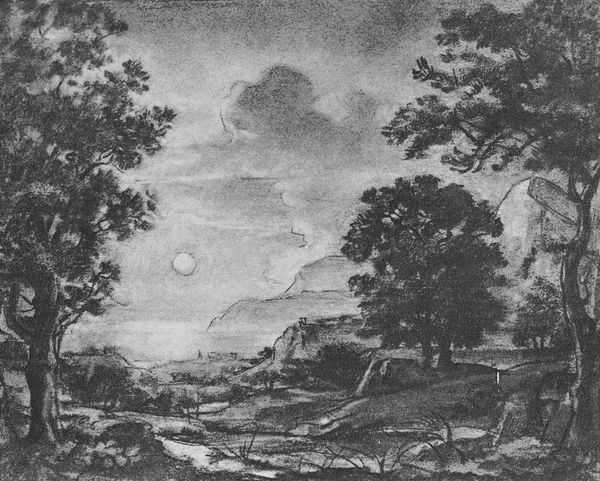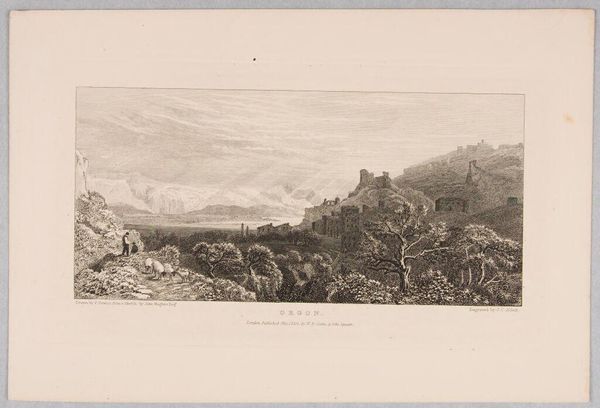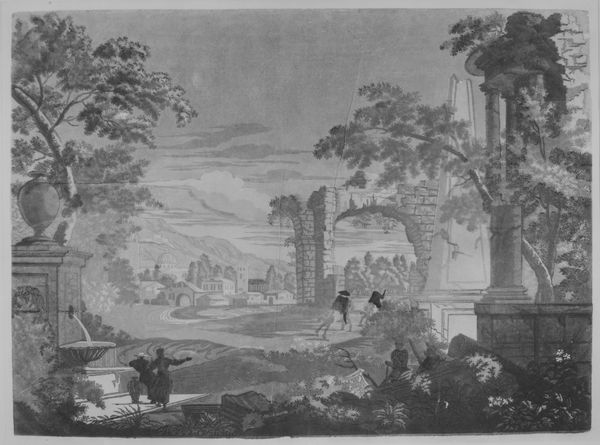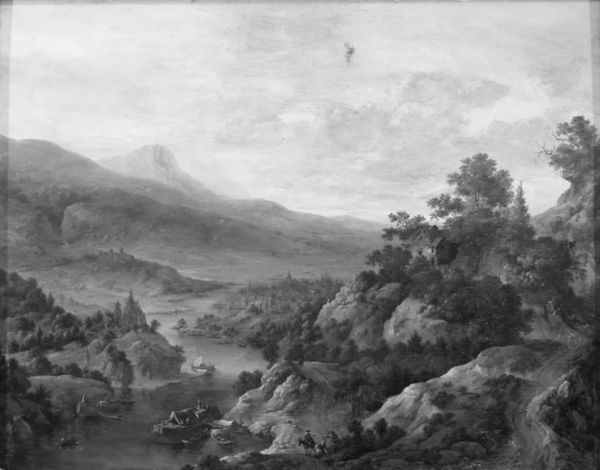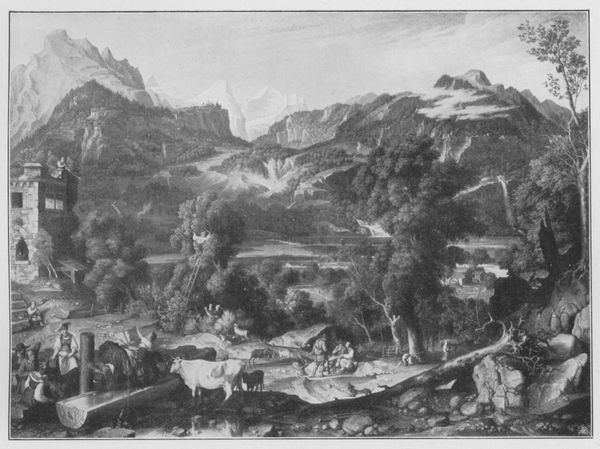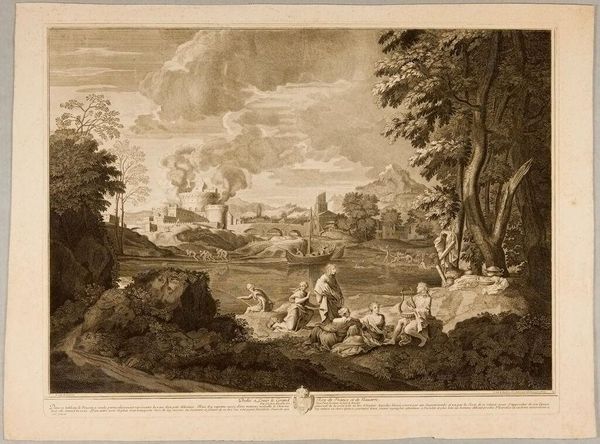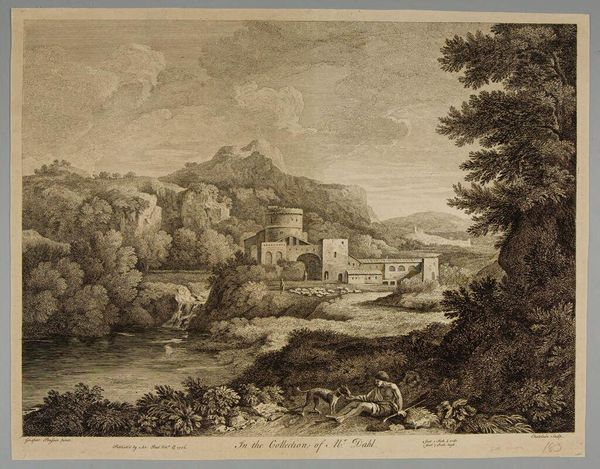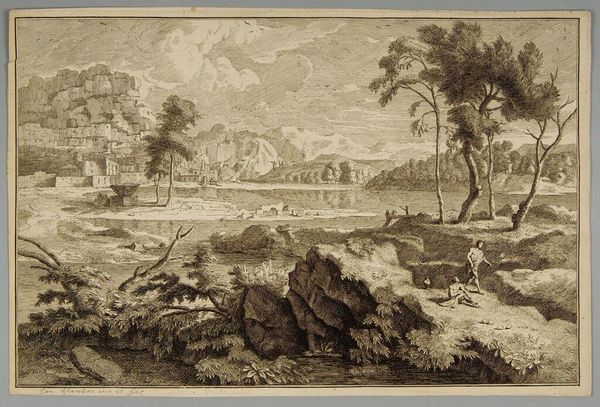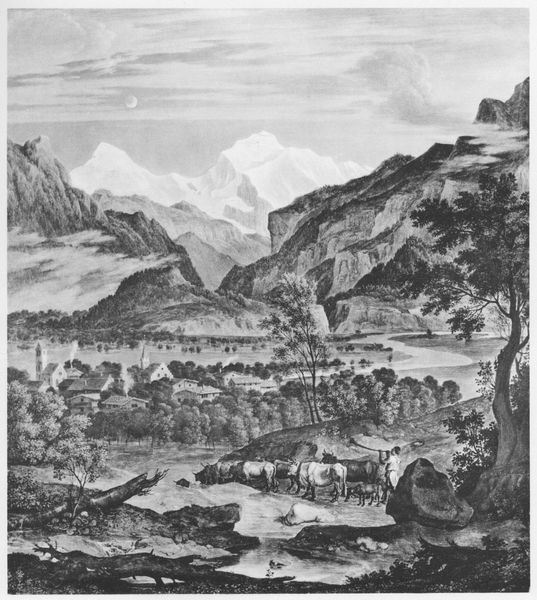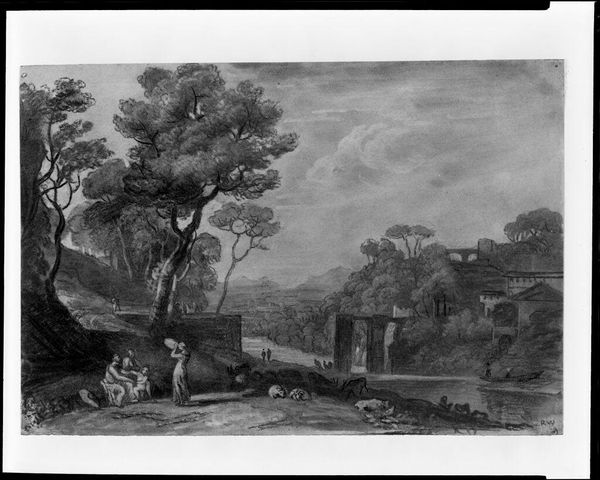
photography
#
natural shape and form
#
cliff
#
natural formation
#
organic shape
#
natural composition
#
nature
#
photography
#
heaven and earth
#
nature environment
#
natural texture
#
natural environment
#
natural form
Dimensions: 112 x 115 cm
Copyright: Public domain
Editor: This is "Landschaft Mit Regenbogen" by Joseph Anton Koch, though the date is unknown. I am struck by the depiction of this landscape; it seems both romantic and... almost industrial, in a way. How do you interpret this work? Curator: Focusing on the means of production, notice how Koch’s use of printmaking—specifically, the labor-intensive process of engraving—allowed for the wide dissemination of landscape imagery. The material itself, the ink on paper, becomes a commodity, a visual shorthand for a particular vision of the world. How might this influence our understanding of nature? Editor: That's interesting! So the mass production affects our perception? Curator: Precisely. And consider the social context: who could afford these prints? Who were they meant for? How does this democratization – through relatively affordable prints – challenge traditional notions of elite artistic consumption, while also reinforcing class structures by dictating the *type* of imagery deemed desirable? Is it really "democratized" if the choice remains limited to a certain range of taste? Editor: That's a perspective I hadn't considered. It changes my perception of the natural imagery itself, recognizing the economics involved in it being printed and distributed. I never thought of the art in terms of commodity so blatantly. Curator: Reflect on the interplay of labor, materiality, and consumption. We see a rainbow, a natural phenomenon. Koch mediates nature through the physical act of creation and distribution, transforming something intangible into a tangible object that enters the marketplace. Editor: So, by examining the "how" and "for whom", we understand a completely different layer of this artwork's meaning and it moves it from being a depiction to a representation of economic system? Curator: Exactly.
Comments
No comments
Be the first to comment and join the conversation on the ultimate creative platform.
